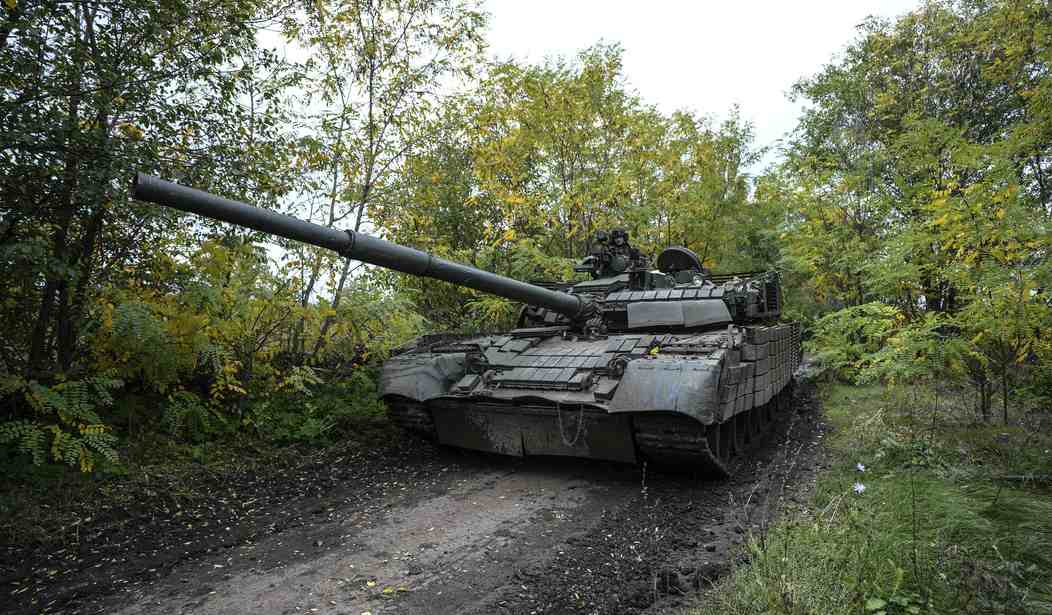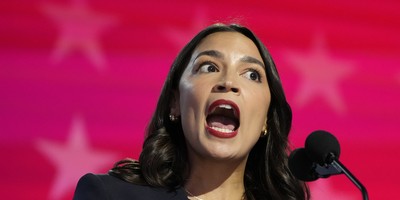Reading these headlines from The Wall Street Journal, "Trump’s Attack on Zelensky Signals New World Order Taking Shape," and MSNBC, "Trump and his MAGA subordinates are ushering in a new world order," you are supposed to believe Trump is destroying the world — again. The latest iteration of Trump’s transgressions is prompted by his administration’s direct negotiations with the Russians to end the war in Ukraine.
Contrary to the foreign policy blob, ending the war in Ukraine would be a crucial step toward restoring global stability and would better position the United States to address the primary challenge to international order — China — which directly impacts U.S. interests.
One of the most persistent claims since Trump came to office is that the rules-based international order is on the verge of collapse. To state the obvious, every major international institution established after World War II — the United Nations, the World Bank, the International Monetary Fund, and the World Trade Organization (formerly GATT)—still exists and continues to operate. NATO countries are finally starting to increase their own defense spending, the European Union endures even without the UK, and the global economic system continues to be governed by international rules and agreements. The idea that negotiating peace in Ukraine is going to end the entire structure of international relations is ridiculous.
Moreover, Ukraine is neither a NATO nor an EU member, meaning its war with Russia does not directly implicate the core security guarantees of the West. In reality, Ukraine was not invited into the EU and NATO for legal, economic and political reasons. Ultimately, neither European nor American leaders saw fit to allow the country into the same formal economic and security agreements enjoyed by the rest of the continent. Treating Ukraine, because of the Russian invasion, as if it's the same as NATO or EU makes no sense.
Recommended
What is logical is ending this war quickly on the most favorable terms possible. The long-term trends for Ukraine are not positive. As Marco Rubio stated during his Senate testimony, “The problem that Ukraine is facing is not that they are running out of money, it’s that they are running out of Ukrainians.” The country is simply exhausting its manpower. For much of the war, conscription applied only to 27-year-olds, and only last April was it lowered to 25. As a result, Ukraine’s army is aging, with the average soldier in his 40s. Ukraine also suffers from the lowest birth rate in Europe, making mass conscription of 18- to 24-year-olds a potential death sentence for the nation’s future. Yet, without more troops and resources, Ukraine lacks the means to launch a counteroffensive and reclaim lost territory.
Ukraine’s theory of victory hinges on a war of attrition, funded by endless Western aid. After years of grinding conflict, Russia is supposed to buckle under the pressure and retreat. This is not a strategy. It is just hope.
The ability of the U.S. to shape the global environment depends largely on its military strength to deter potential aggressors from threatening its allies or the nation itself. The key to this deterrence lies in convincing Beijing that any conflict over Taiwan would end disastrously for them. To that end, the war in Ukraine has depleted U.S. munitions and revealed weaknesses in the U.S. defense industrial base. There are tradeoffs happening even now between sending arms to Ukraine and Taiwan. Trump’s nominee for Undersecretary of Defense for Policy, Elbridge Colby, has made this point repeatedly since the war began.
It is widely accepted that in the event of war between China and the U.S., even an ultimate U.S. victory would likely see tens of thousands of American service members killed. The longer the Ukraine-Russia war continues, the better it is for China. This is partially why China is aiding Russia with economic, military and diplomatic support. Ending the war now will allow the U.S. to rebuild its military strength, replenish critical stockpiles, and give Europe time to ramp up its own defenses. This isn’t recklessness, it’s realism. And it’s long overdue.
Aside from the self-evident benefits of peace, we may also steer ourselves away from unforeseen tragedies. Wars, by their nature, are unpredictable, their consequences rippling through history in ways even the most seasoned analysts fail to foresee.
In Philip Zelikow’s The Road Less Traveled: The Secret Battle to End the Great War 1916-1917, Zelikow details how President Wilson and the warring powers could have ended the First World War much earlier. German Chancellor Theobald von Bethmann Hollweg and German Ambassador to the United States, Count Johann Heinrich von Bernstorff, were willing to make peace, even if it meant giving up the gains German armies made in Belgium and France. Unfortunately, President Wilson failed to use America's financial leverage to persuade Great Britain and France to negotiate, resulting, in Zelikow's words, "the most consequential diplomatic failure in the history of the United States." The war raged on, morphing into a beast of its own making—generals orchestrating offensives and counter offensives, each battle feeding the insatiable hunger for vengeance. Peace was heresy, a betrayal of the fallen, as every death demanded atonement in an endless spiral of blood and retribution. The war shattered the world order that had been in place since the end of Napoleon. Empires disintegrated, bringing the Austria-Hungarian, Russian, and Ottoman realms to ruin. In its wake, the Bolshevik Revolution ignited, while the Baltics and the Middle East became cauldrons of perpetual unrest. Had the bloodshed ceased sooner, the Treaty of Versailles might never have been written in its vengeful ink, and the Nazi rise perhaps averted.
Peace in Europe, an America arming itself for future conflicts, with a focus on deterring China — this is not weakness. This is the foundation for a stronger international system that ensures wars are ended before they spiral into deeper chaos. The Trump world order upholds global norms by prioritizing diplomacy over endless bloodshed. And it reaffirms what truly maintains stability — not perpetual conflict, but the careful, calculated use of power to secure peace. Trump’s negotiations aren’t a sign of global chaos — they mark the first step toward restoring an international system that works in America’s interests.
Craig Caruana is a writer based in New York City with diverse experiences in defense, workforce development and the media. Earlier in his career, Caruana served as an appointee in the Pentagon during President George W. Bush’s administration, and as a civilian naval intelligence analyst.

























Join the conversation as a VIP Member